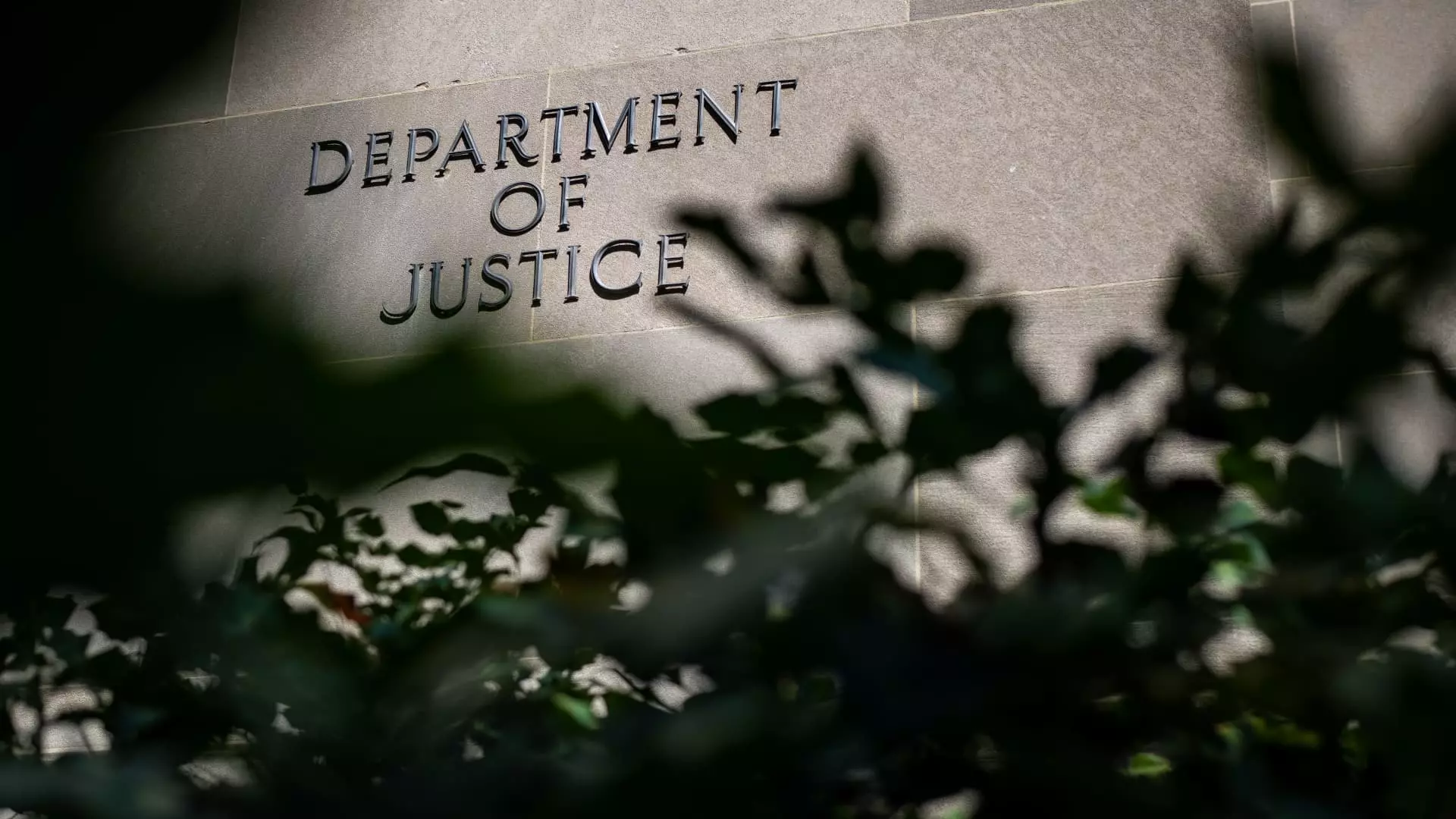The recent dissolution of the National Cryptocurrency Enforcement Team (NCET) by the U.S. Department of Justice (DOJ) is more than just a bureaucratic reshuffling; it represents a significant ideological shift in the U.S. government’s approach to cryptocurrency regulation. This move, orchestrated by Deputy Attorney General Todd Blanche, underscores an alarming departure from necessary oversight that many advocates believe market players require to operate safely in the burgeoning realm of digital assets. The DOJ’s new directive emphasizes a decentralized model, leaving individual U.S. attorney’s offices responsible for handling cryptocurrency-related crimes. This decentralized approach raises grave concerns about the effectiveness of enforcement and the potential for increased criminal activity in online financial spaces.
Red Flags Over Regulatory Reversals
The statement from Deputy Attorney General Blanche delineates a new focus on prosecuting individuals who “victimize digital asset investors” and those who employ cryptocurrencies in heinous actions like terrorism and human trafficking. While the intention sounds commendable, the underlying message is troubling. By dismantling a dedicated enforcement unit that was once pivotal in high-profile cases—like the controversial investigation into Binance—this administration risks painting a bullseye on law-abiding institutions instead of addressing systemic issues within the crypto ecosystem. The memo’s guidance to close ongoing investigations that do not align with the newly defined objectives effectively signals a retreat from proactive enforcement.
The implications of such a shift are far-reaching. It is disheartening to see a regulatory body retreating from scrutinizing entities in a sector that has become synonymous with volatility and manipulation. The shift in enforcement priorities also aligns with the Trump administration’s broader deregulatory bent, which often prioritizes profit over consumer protection. It raises the specter of unchecked malfeasance as the DOJ explicitly states it will not enforce actions against crypto exchanges or related services unless intentional wrongdoing can be demonstrated. This hands-off approach invites criminals and opportunistic actors to exploit regulatory black holes with impunity.
Trump’s Connection to Crypto Policies
The chaos of regulatory inconsistency becomes even more pronounced considering the personal stake that the Trump family has in various cryptocurrency ventures. As President Trump rallies a base increasingly enamored by the promise of decentralized finance, it seems the administration’s policy changes serve dual purposes: to legitimize the family’s financial interests and to placate constituents eager for more liberal cryptocurrency policies. It’s a troubling entanglement, leading to questions about how policy decisions might indirectly further the Trump family’s own financial gains, including their foray into meme coins and the planned decentralization of banking through initiatives like World Liberty Financial.
Trump’s position as a disruptor in the political landscape empowers his administration to pursue a hands-off regulatory approach, which, while attractive in theory, places consumers and investors at considerable risk. The fact that the DOJ will refrain from actions deemed “superimposing regulatory frameworks” is a dangerous precedent, as it essentially relinquishes federal oversight to state and private entities that may lack the accountability or resources to adequately protect investors.
A Dark Future for Investor Protection
Market participants are already feeling the ramifications of this new DOJ approach. The broader cryptocurrency space, once buoyed by optimism and speculative finance, has seen a significant downturn as concerns over instability mount. With Bitcoin trading lower than its past highs and the overall market cap shrinking drastically, it is clear that simply adjusting the regulatory focus will not keep the industry from facing existential threats.
Without robust enforcement mechanisms, the landscape increasingly resembles a wild west where the lines of legality are blurred, fostering an environment ripe for fraud and exploitation. By stripping down protections that potentially shield everyday investors from aggressive scammers, the Trump administration risks exacerbating the very issues it claims to address. The DOJ’s recent memo reveals an unwillingness to impose financial consequences on established actors, sending a worrying message that the government will turn a blind eye to less scrupulous market participants.
As the DOJ withdraws from cryptocurrencies without a comprehensive plan for investor security, we must confront the unsettling reality that this regulatory retreat poses severe risks. The landscape of cryptocurrency demands careful scrutiny, and the notion of freedom in financial transactions must not come at the expense of basic safety measures that protect vulnerable investors. Without a commitment to rigorous oversight, the crypto industry may become a playground for criminals—a scenario that nobody, least of all consumers, should find acceptable.

